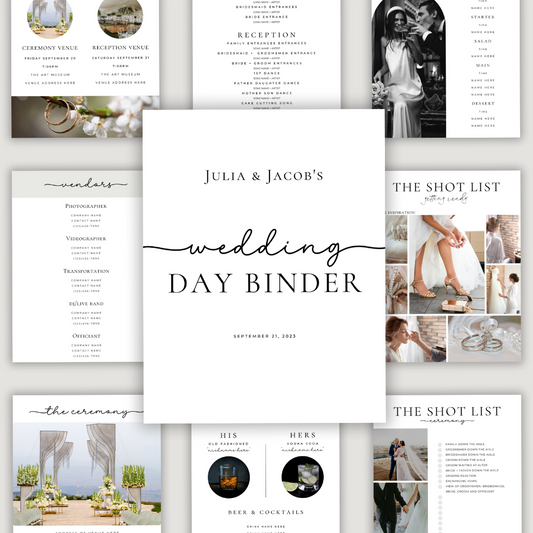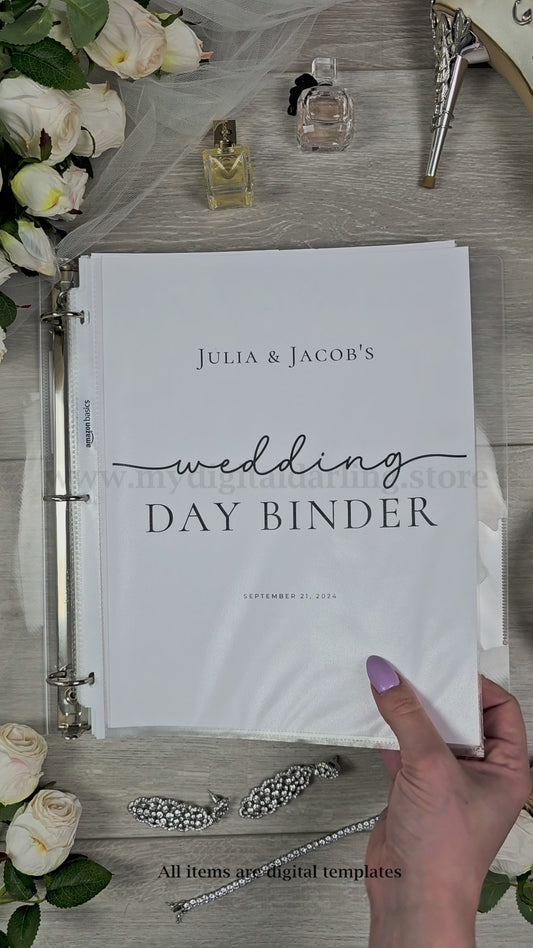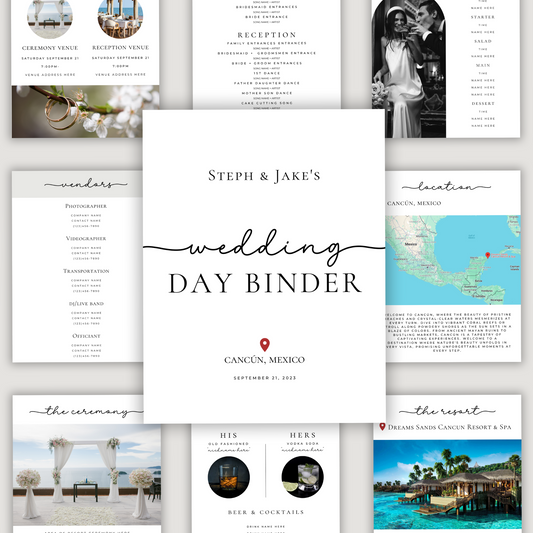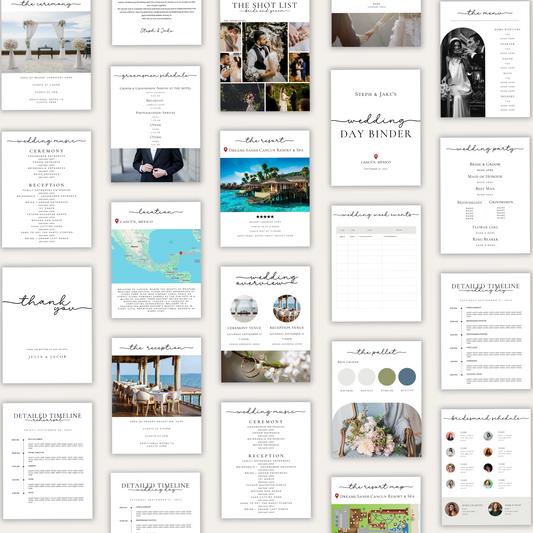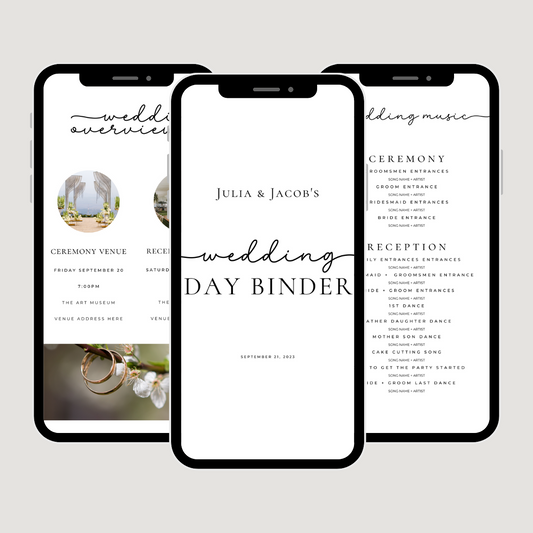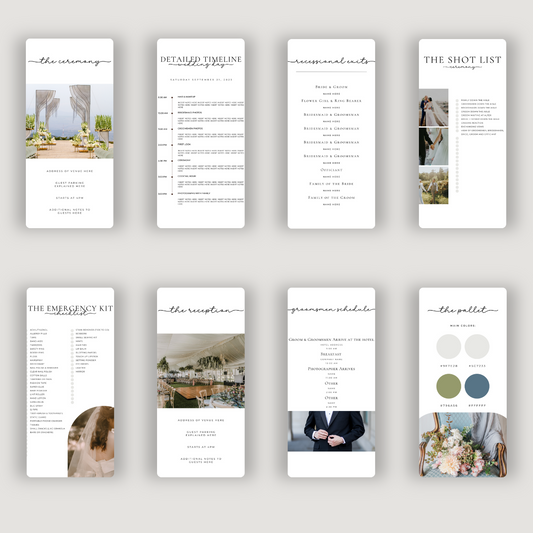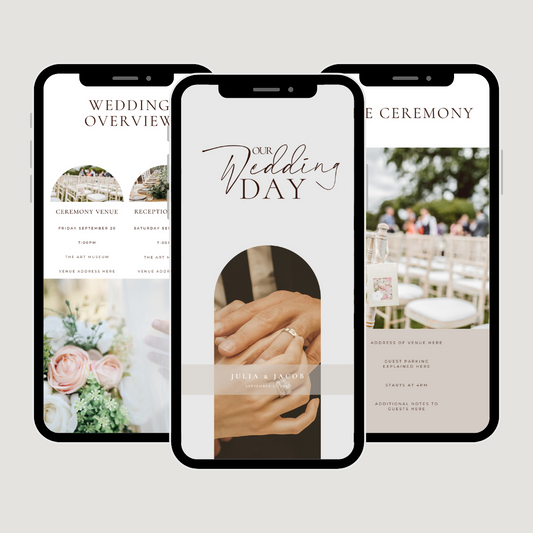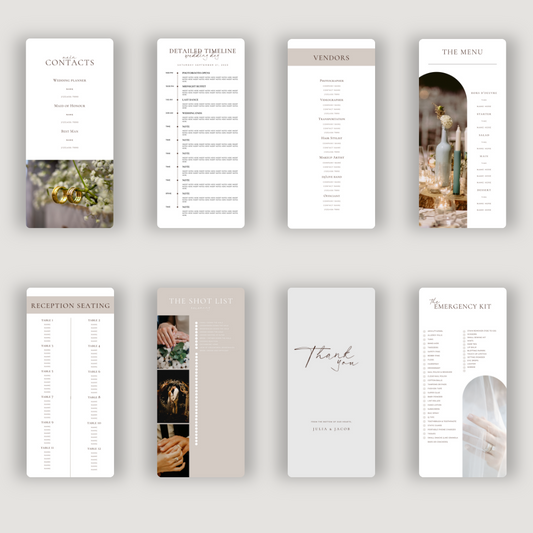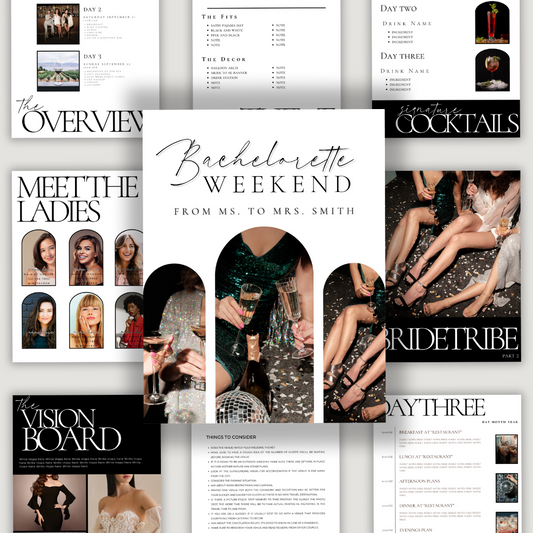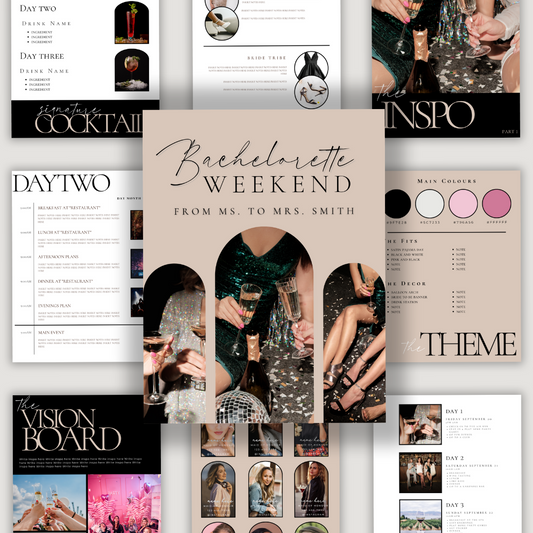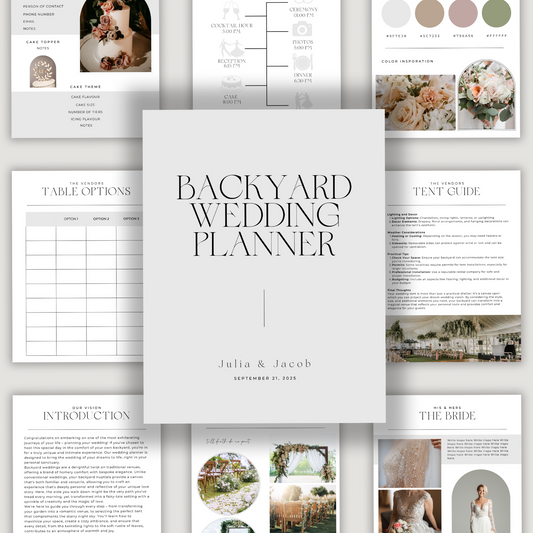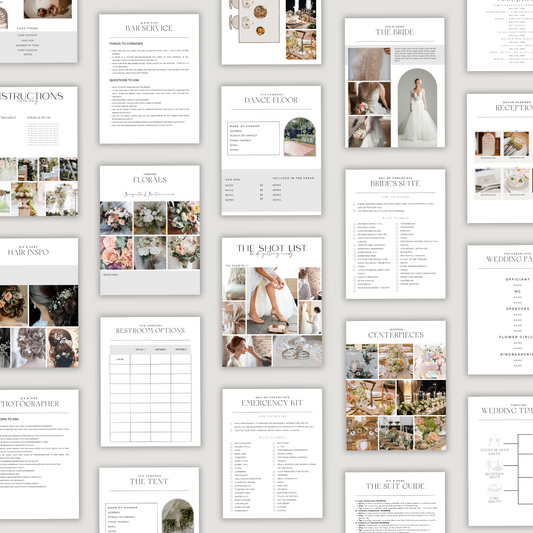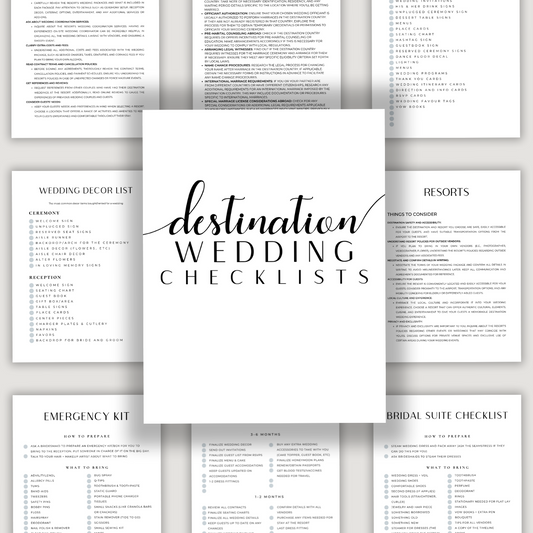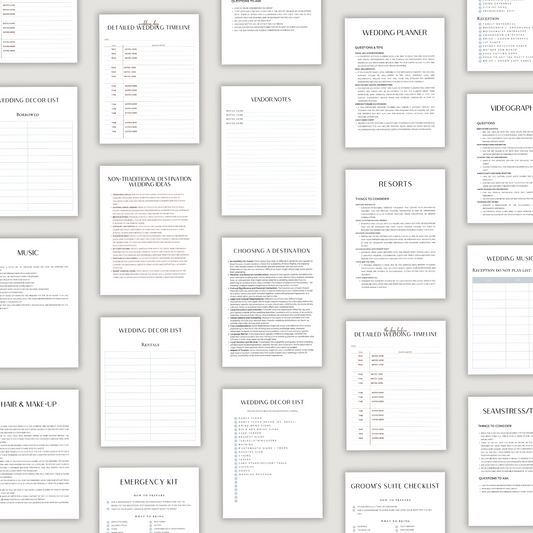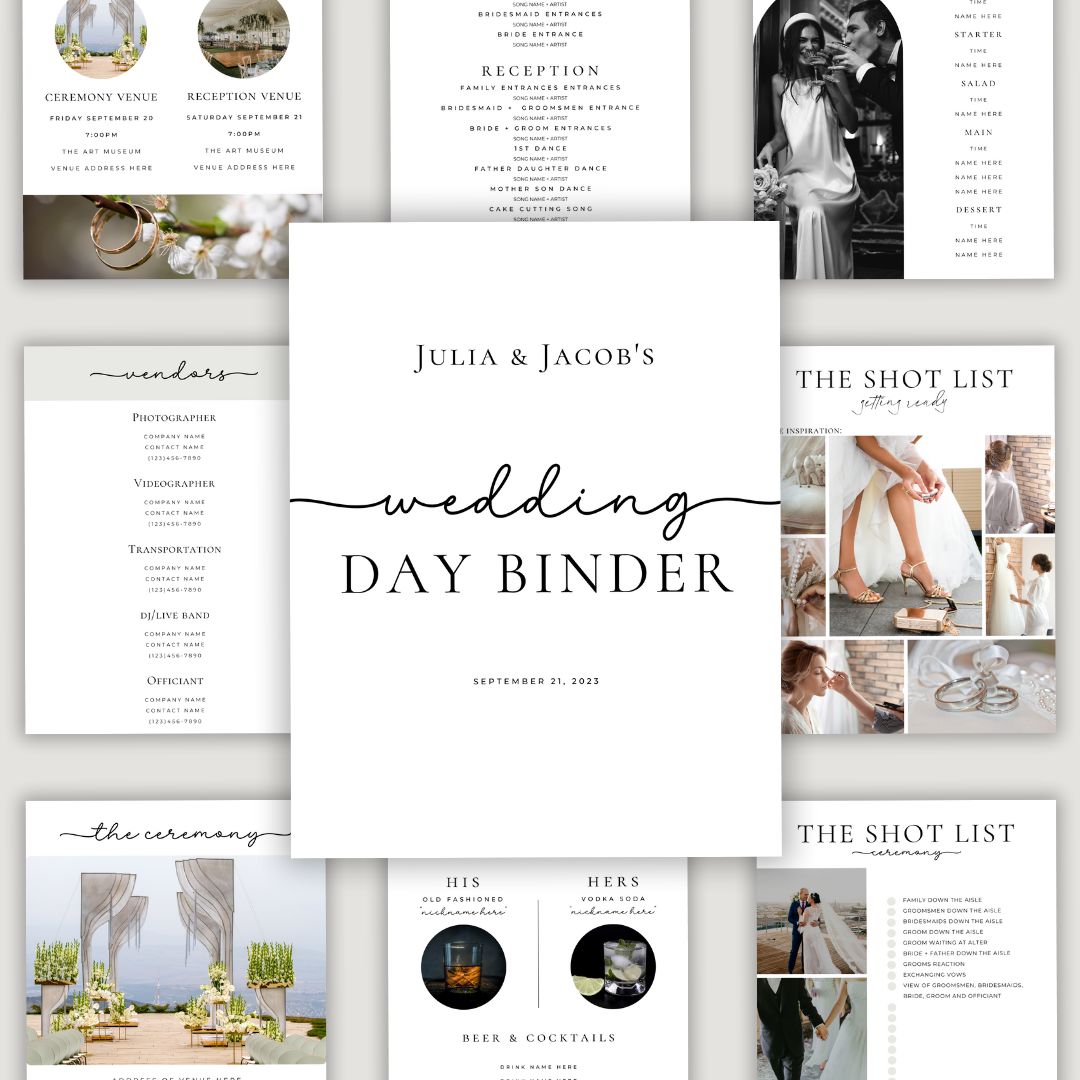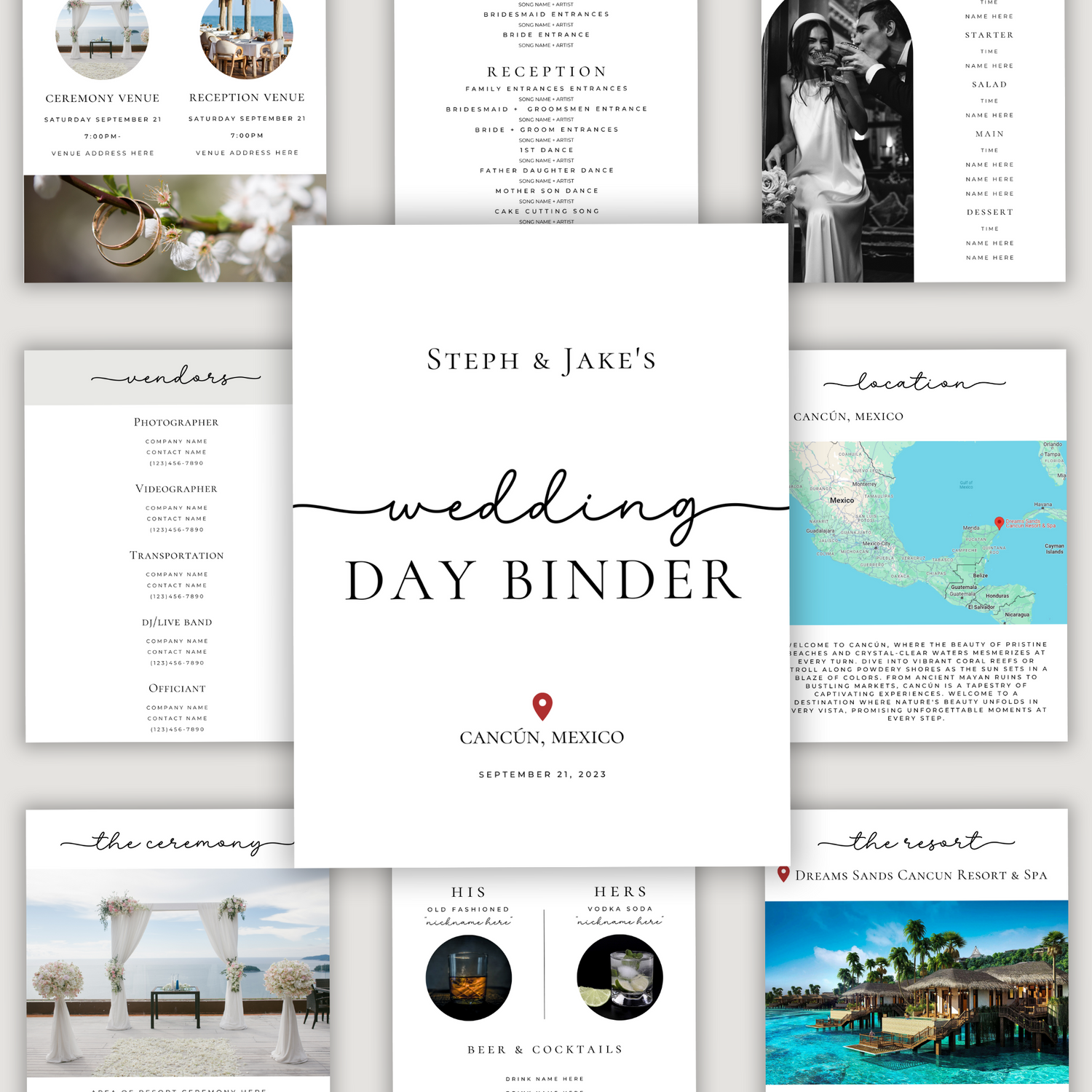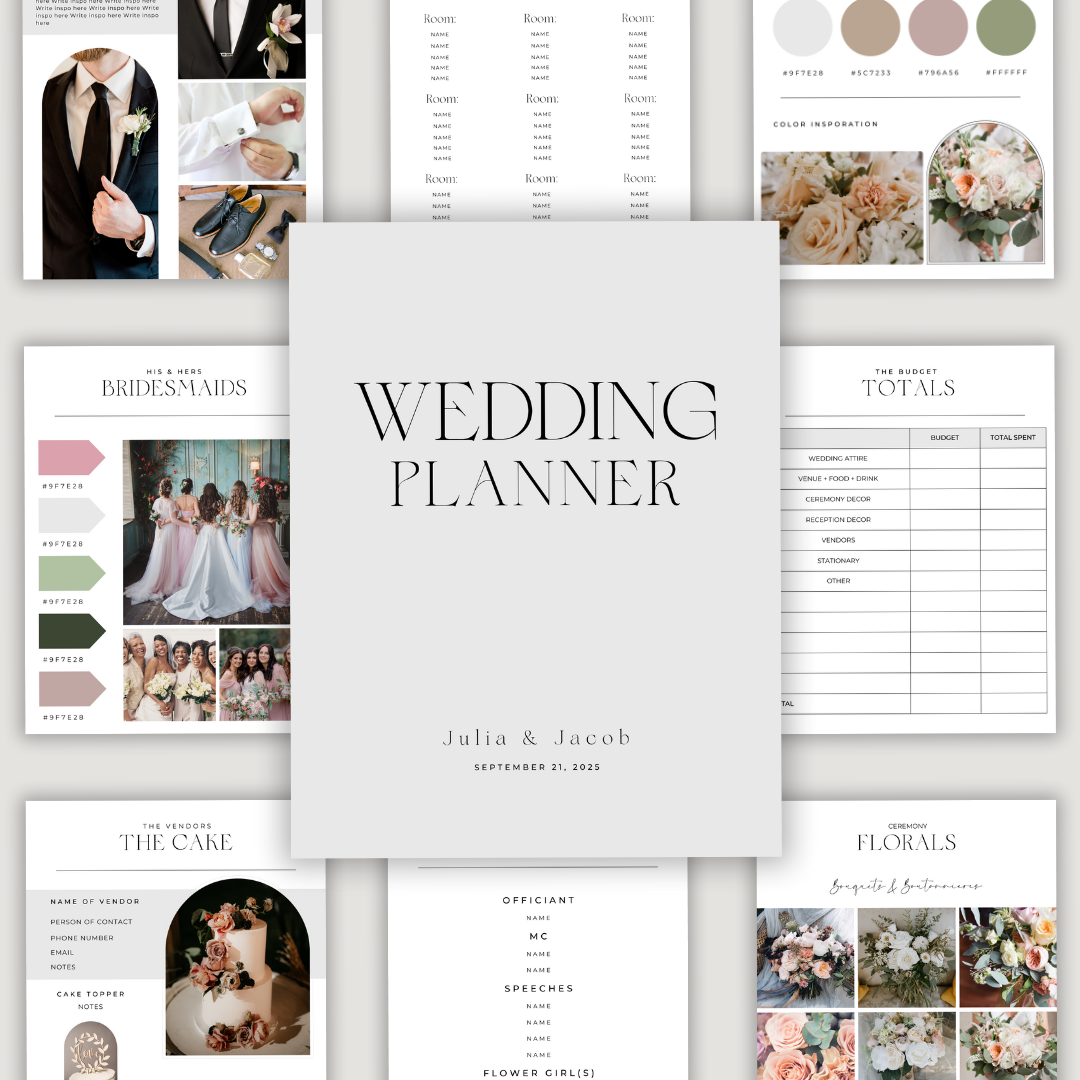What's a Typical Wedding Budget?
Share
Planning a wedding is one of the most exciting times in a couple's life. However, it can also be one of the most stressful, especially when it comes to budgeting. Understanding what a typical wedding budget looks like can help you plan better and make informed decisions. In this blog post, we'll break down the key components of a wedding budget, provide average costs, and offer tips on how to manage your expenses effectively. Additionally, we'll highlight some fantastic digital planning products from us to help make your wedding planning smoother and more enjoyable.
The Importance of Budgeting
Before diving into the specifics, it's crucial to understand why budgeting is essential. A well-planned budget helps you:
- Avoid overspending
- Prioritize essential elements
- Allocate funds efficiently
- Reduce financial stress
- Enjoy your special day without financial regrets
Key Components of a Wedding Budget
A typical wedding budget consists of several major categories. Here's a breakdown of the most common expenses:
1. Venue
The venue often takes up the largest portion of the budget. Costs can vary significantly based on location, size, and the type of venue. On average, couples spend around $10,000 to $15,000 on their wedding venue.
2. Catering
Food and beverages are another major expense. Depending on the number of guests and the type of meal service (buffet, plated, or family-style), catering costs can range from $5,000 to $10,000.
3. Photography and Videography
Capturing the memories of your big day is priceless, but it comes at a cost. Professional photography services typically range from $2,500 to $5,000, while videography can add another $1,500 to $3,000.
4. Attire
The wedding dress, groom's attire, and accessories can add up quickly. Brides often spend between $1,500 and $3,000 on their dress, while grooms might spend $500 to $1,000 on their suit.
5. Flowers and Decor
Flowers and decor set the mood and theme for the wedding. Expect to spend around $2,000 to $5,000 on floral arrangements, centerpieces, and other decorations.
6. Entertainment
Whether you choose a DJ or a live band, entertainment is a crucial part of the celebration. Costs can range from $1,000 to $3,000, depending on your choice.
7. Invitations and Stationery
Invitations, save-the-dates, and other stationery items usually cost between $500 and $1,500.
8. Miscellaneous Expenses
Don't forget about additional expenses like transportation, wedding favors, and gifts for the bridal party. These can add another $1,000 to $2,000 to your budget.
Our Digital Planning Tools
To help manage these expenses and keep your planning organized, we offer a range of digital products tailored to wedding planning:
Digital Wedding Planners
These planners are designed to be fully customizable, giving you the freedom to personalize each aspect of your planning journey. They include sections for budgeting, timelines, vendor information, and more, all in an elegant and user-friendly format.
Wedding Day Binders
Acting as your digital wedding coordinator, these binders include all essential details needed by your vendors, wedding party, and wedding planner. They feature schedules, checklists, contact information, and decor instructions to ensure everything runs smoothly on your big day.
Wedding Bundles
These bundles combine several templates, such as checklists and shot lists, to provide comprehensive planning support. They are perfect for DIY brides and include tools for managing every aspect of the wedding, from decor to seating arrangements.
Tips for Managing Your Wedding Budget
1. Set Priorities
Decide which elements are most important to you and allocate your budget accordingly. If photography is a top priority, you might spend more there and cut back on decor.
2. Track Expenses
Use a wedding budget tracker to keep tabs on all your expenses. This helps you stay within budget and make adjustments as needed.
3. Be Realistic
Set a budget that aligns with your financial situation. It's better to have a smaller, more intimate wedding within your means than to go into debt for a lavish affair.
4. Consider Off-Peak Times
Weddings held during the off-peak season or on weekdays can be significantly cheaper than those on popular weekends.
5. DIY Where Possible
If you're crafty, consider DIY projects for decorations, invitations, or even favors. This can save you a considerable amount of money.
Creating a realistic wedding budget is crucial for planning a successful and stress-free wedding. By understanding the typical costs and following our budgeting tips, you can ensure your special day is both memorable and financially sound. Remember, the most important thing is celebrating your love with family and friends, regardless of the price tag.

